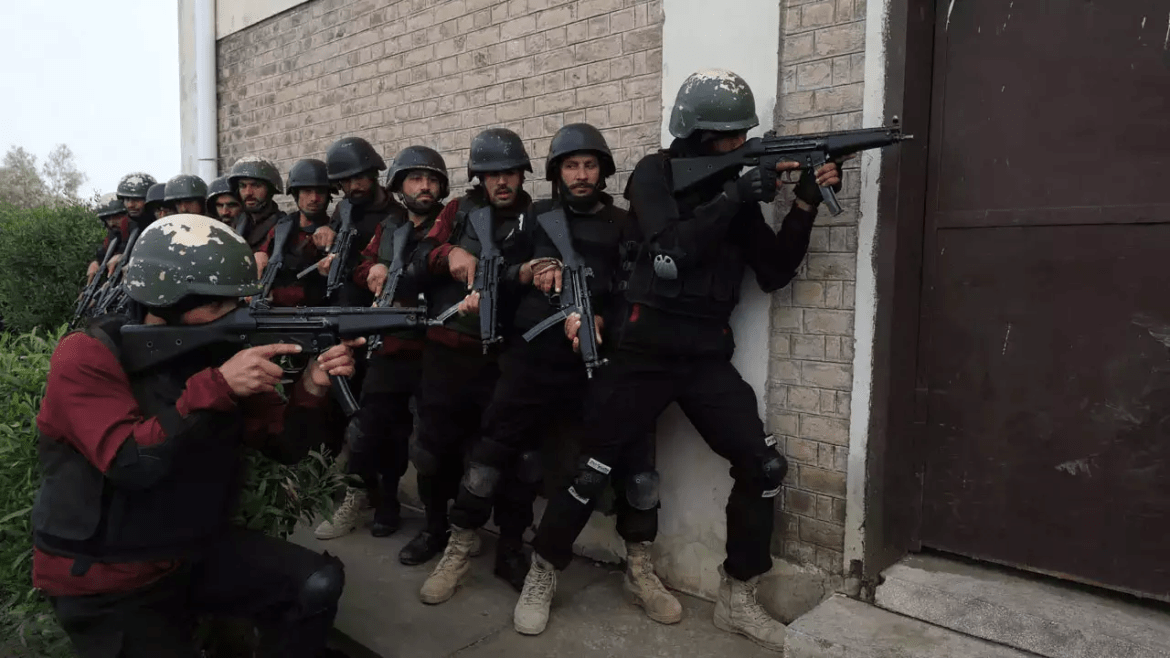AI Generated Summary
- According to the report, India stands accused of conducting these operations with the intention of eliminating individuals deemed hostile to its interests, particularly in the aftermath of the Pulwama attack in 2019.
- In December 2023, Khalsa Vox published an article shedding light on Pakistan’s Policy of State-Sponsored Terrorism and its repercussions, particularly the destabilization of the domestic security apparatus caused by the sheltering of terrorist elements.
- In a recent report published by the UK daily, The Guardian, a controversial spotlight has been cast on allegations against India, accusing it of orchestrating targeted killings within Pakistan’s borders.
In a recent report published by the UK daily, The Guardian, a controversial spotlight has been cast on allegations against India, accusing it of orchestrating targeted killings within Pakistan’s borders. According to the report, India stands accused of conducting these operations with the intention of eliminating individuals deemed hostile to its interests, particularly in the aftermath of the Pulwama attack in 2019.
The Indian foreign ministry has swiftly moved to rebuff these claims, denouncing them as “false and malicious anti-India propaganda.” Foreign Minister S Jaishankar reiterated that targeted killings in other countries were not part of India’s governmental policy. This strong denial echoes throughout the halls of diplomacy.
In December 2023, Khalsa Vox published an article shedding light on Pakistan’s Policy of State-Sponsored Terrorism and its repercussions, particularly the destabilization of the domestic security apparatus caused by the sheltering of terrorist elements. This destabilization manifested in a series of assassinations within Pakistan. Predictably, Pakistan’s response was to attribute blame to India, a familiar refrain in such circumstances. What is noteworthy, however, is the decision by reputable Western media outlets, such as The Guardian, to disseminate unverified propaganda sourced from Pakistani Intelligence Agencies, thereby presenting a decidedly one-sided narrative.
The report alleges that the Indian intelligence agency RAW (Research and Analysis Wing) has been involved in as many as 20 targeted assassinations since the Pulwama incident. Drawing parallels with renowned intelligence agencies like Mossad and the KGB, India supposedly adopted tactics reminiscent of extrajudicial killings conducted on foreign soil. Such claims send ripples of concern through international circles, especially considering the gravity of the accusations.
One cannot overlook the backdrop against which these allegations unfold. First, India heads to elections in the next couple of months. Second, Pakistan’s domestic security and financial apparatus are teetering on the brink of collapse, grappling with internal challenges of considerable magnitude. Yet, despite these pressing concerns, the tendency to deflect blame towards neighboring India remains ingrained within certain quarters of Pakistani discourse.
It’s a phenomenon that has become somewhat of a fad in Pakistan—to point fingers at India for anything amiss within its borders. Whether it’s economic woes, internal security lapses, or political turmoil, there seems to be a reflexive inclination to attribute blame across the border. This habitual scapegoating not only deflects attention from internal shortcomings but also exacerbates tensions between the two nations, hindering any potential for constructive dialogue or collaboration.
Moreover, the timing of such allegations raises questions about the underlying motivations. As Pakistan grapples with multifaceted challenges, including economic instability and internal security threats, the inclination to deflect attention towards external actors seems particularly convenient. By directing scrutiny towards India, certain factions within Pakistan may seek to divert attention from their own shortcomings, perpetuating a cycle of blame rather than addressing root causes.
The report mentions Pakistani authorities presenting documents purportedly linking these killings to Indian intelligence, yet independent verification remains elusive. This lack of concrete evidence underscores the need for transparency and accountability in cross-border relations. Without verifiable evidence, accusations risk further inflaming tensions and perpetuating a climate of mistrust and hostility.
As the international community scrutinizes these allegations and their potential ramifications, it becomes imperative for both Pakistan to focus on improving the domestic apparatus. Rather than engaging in a blame game that serves only to deepen divides, Pakistan must demonstrate a commitment to addressing internal challenges and fostering constructive engagement on regional security issues.
The opinions expressed in this article are those of the author. They do not purport to reflect the opinions or views of Khalsa Vox or its members.




